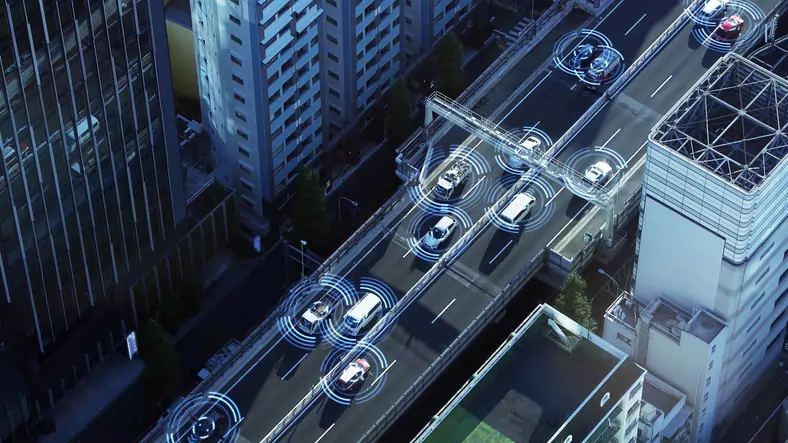
In Australia’s transportation sector, technological advancements are transforming how businesses operate, from logistics and fleet management to road safety and fuel efficiency. Whether you’re a business owner, fleet manager, or truck driver, understanding these trends is crucial for staying competitive in the ever-evolving market.
- Connected Vehicles and Telematics
Connected vehicle technology has significantly impacted fleet management, providing real-time data on vehicle locations, performance, and driver behaviour. Fleet managers can now monitor and optimize operations remotely, ensuring efficiency while reducing operational costs. One company playing a crucial role in this space is Radius, which offers cutting-edge telematics solutions, helping Australian businesses streamline their operations. Their solutions provide insights into fuel usage, vehicle routes, and maintenance needs, improving overall fleet performance.
- Autonomous Vehicles and Automation
Autonomous vehicle technology, although still in its developmental stages, is poised to revolutionize the transportation industry. Self-driving trucks and vehicles promise to reduce labour costs and improve delivery times, especially for long-haul transport across Australia’s vast distances. Businesses are now investing in automated systems that can handle everything from vehicle diagnostics to loading and unloading goods. As autonomous vehicles become more prevalent, fleet managers will need to adapt their strategies to integrate these innovations into their operations.
- Electric Vehicles (EVs) and Sustainability
Sustainability has become a major focus for transportation companies. With increasing fuel prices and government incentives for reducing carbon emissions, many Australian fleet operators are transitioning to electric vehicles (EVs). EVs offer lower operating costs over time, reduce the carbon footprint, and can contribute to meeting corporate sustainability goals. Fleet managers are encouraged to explore EV options, as the future of transportation is leaning heavily toward electric power.
- Route Optimization and AI
Artificial intelligence (AI) and machine learning are playing a key role in optimizing routes, which is crucial for businesses managing multiple deliveries and pickups. AI-powered software can analyse traffic patterns, weather conditions, and road infrastructure to suggest the most efficient routes. This technology not only reduces fuel consumption but also ensures timely deliveries. Radius provides integrated solutions that help businesses monitor routes and adjust them in real time, enhancing the efficiency of fleet operations across Australia’s vast geography.
- Enhanced Safety Features
Safety remains a top priority in the transportation industry, and technology has made significant strides in this area. Advanced driver-assistance systems (ADAS), such as lane departure warnings, adaptive cruise control, and emergency braking systems, have become standard in modern vehicles. These technologies help reduce accidents and protect drivers and cargo. Fleet managers can leverage such technologies to ensure compliance with safety standards, reduce insurance premiums, and improve overall operational safety.
- Fleet Management Software
Managing a large fleet of vehicles has always been challenging, but modern fleet management software has made it more efficient than ever. Software solutions provide real-time data on vehicle locations, fuel consumption, and driver performance, allowing managers to make informed decisions quickly. With Radius, Australian fleet managers can access advanced telematics and fuel management systems that allow them to monitor and control their fleets remotely. This not only improves efficiency but also reduces costs associated with maintenance and fuel.
- The Future of Fuel Management
Fuel remains one of the highest costs for transportation companies, and managing this expense effectively is essential. Technologies such as fuel cards and smart fuel management systems help fleet managers track fuel usage, reduce waste, and prevent theft. Radius offers tailored solutions to businesses, providing them with tools to monitor fuel expenses and optimize consumption. By integrating these solutions, companies can save on fuel costs and improve profitability.
- Regulatory Compliance and Technology
Staying compliant with Australian transportation regulations can be complex, but technology is simplifying the process. Digital logbooks, real-time vehicle diagnostics, and automated reporting tools allow fleet managers to ensure that their operations comply with local and national laws. Telematics solutions like those offered by Radius can help business owners and fleet operators stay up to date with maintenance schedules, driver hours, and other regulatory requirements, reducing the risk of fines and legal issues.
Conclusion
Technology is rapidly reshaping the transportation industry in Australia, offering new opportunities for fleet managers, business owners, and truck drivers to improve efficiency, reduce costs, and enhance safety. Companies like Radius are leading the way with innovative solutions, helping businesses optimize their operations and stay competitive in an evolving market. By embracing these technological advancements, transportation companies can ensure a more sustainable and efficient future.
Whether you’re looking to improve your fleet’s performance or reduce operational costs, staying informed about these technological trends is essential for future success in Australia’s transportation industry.


